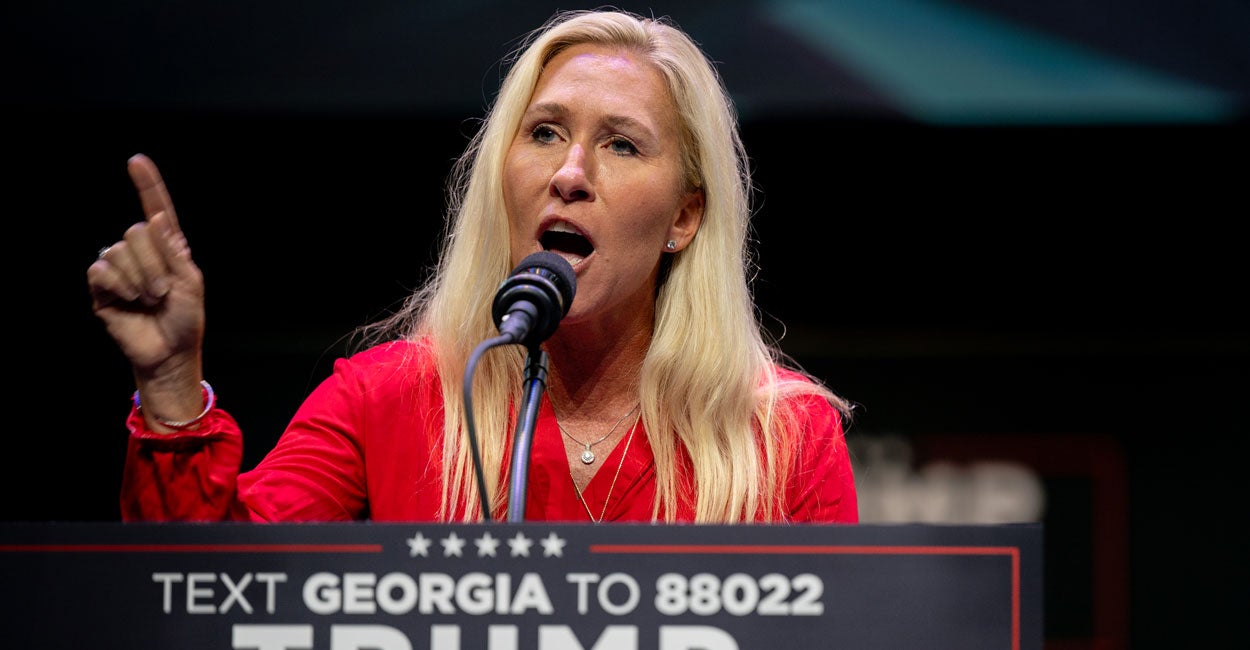


It’s 2025—and we now know, all too well, the problems that Big Tech brings.
We know that the rise of smartphones and apps has been correlated with a rise in mental illness among young Americans. We know that tech giants were willing to collude with the Biden White House and censor critical debates over COVID-19. We know that tech behemoths targeted conservatives, whether it was Amazon banning conservative scholar Ryan T. Anderson’s brave book on transgenderism, “When Harry Became Sally,” or Twitter banning accounts for “misgendering.”
So why on earth would a GOP-controlled Congress give the tech companies more power?
Tucked into the “big, beautiful bill,” as President Donald Trump has dubbed it, is a provision that would require any state that accepted certain federal government funds related to artificial intelligence from enforcing new or old laws targeting AI companies.
Potentially, depending on how certain language in the bill is interpreted by judges, it could apply to any tech company that has technology relying on algorithms—meaning, social media companies such as TikTok, Meta (parent of Facebook and Instagram), and X could be affected as well.
This provision would effectively be “a complete 10-year shield for Big Tech to do whatever it wants,” warns Wes Hodges, acting director of the Center for Technology and the Human Person at The Heritage Foundation.
Rep. Marjorie Taylor Greene, R-Ga., who says she will not vote again for the reconciliation bill if that provision remains in it, posted on the social platform X earlier this month, “We have no idea what AI will be capable of in the next 10 years, and giving it free rein and tying states‘ hands is potentially dangerous.”
The Georgia Republican isn’t the only conservative lawmaker who has concerns. Republican Sens. Josh Hawley of Missouri, Rand Paul of Kentucky, and Marsha Blackburn of Tennessee reportedly sent a letter to Senate Majority Leader John Thune asking him to remove the AI provision from the bill.
Gov. Sarah Huckabee Sanders wrote in an opinion column in The Washington Post Thursday that ”[i]f Congress’s glacial movement to protect kids from the harms of social media is any indication, the body would be paralyzed by industry lobbying and fail to act.”
“And as that debate went on, states like Arkansas would be unable to ban AI child pornography for a full decade. That’s unacceptable,” the Arkansas Republican added.
There’s also bipartisan concern. Forty state attorneys general wrote a letter in May expressing their opposition to the provision.
Proponents of the AI regulation ban, including conservative stalwart Sen. Ted Cruz, R-Texas, and Commerce Secretary Howard Lutnick, rightly point out it’s critical for national security that AI companies not be unduly hampered by regulation. As China moves rapidly ahead to improve its AI, the U.S. must stay on the cutting edge.
There’s already been one concerning bill that might have significantly affected AI innovation. Last year, California lawmakers passed a bill that California Chamber of Commerce CEO Jennifer Barrera said “would have stifled AI innovation, putting California’s place as the global hub of innovation at tremendous risk.” The bill was ultimately vetoed by Gov. Gavin Newsom, a Democrat, but no doubt it won’t be the last attempt by lawmakers to place onerous regulations on AI companies.
But it can both be true that the U.S. needs to make sure there aren’t too many regulations on AI and that a ban on AI regulation for 10 years is too broad. We just cannot predict right now all the potential societal harms AI could bring.
“If you look at how AI is being deployed today, the No. 1 use is in companionship and therapy,” says Hodges, citing an April Harvard Business Review article looking at generative AI.
“We actually have a duty as a nation to make sure that Big Tech is not preying on children,” he adds. “And if there are not appropriate laws put into place to prevent that, most certainly they will, because they have done so already with social media.”
It’s time to learn from the past—and not give Big Tech the green light to run rampant over our cultural values and our children.
